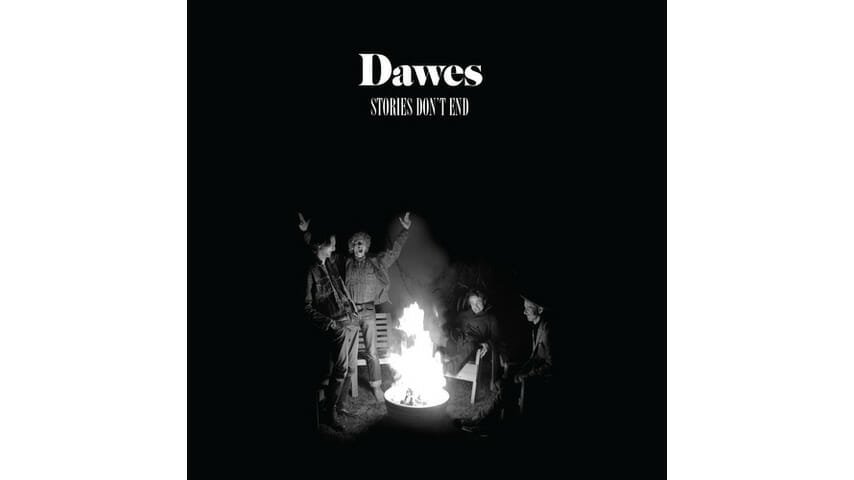Dawes: Stories Don’t End

With Stories Don’t End, their third studio album, Dawes aimed to break free from their pigeonholed place in popular music. They’ve been branded ‘70s rock throwbacks: chasing the open-highway Laurel Canyon churn of Jackson Browne, the expansive vocal harmonies of CSNY, the deep-pocket punch of The Band. And that’s a sound that’s served them well: In 2013, they’re the torch-carriers of this old-fashioned sound—even if they don’t want to be. When I interviewed bassist Wylie Gelber a couple weeks back, he recognized that influence—as well as their need to push past it: “That’s our favorite music ever,” he said. “But for this one, we just wanted to push ourselves out of our comfort zone a little bit, working with a new producer and trying to get new sounds.”
-

-

-

-

-

-

-

-

-

-

-

-

-

-

-

-

-

-

-

-

-

-

-

-

-

-

-

-

-

-

-

-

-

-

-

-

-

-

-

-








































